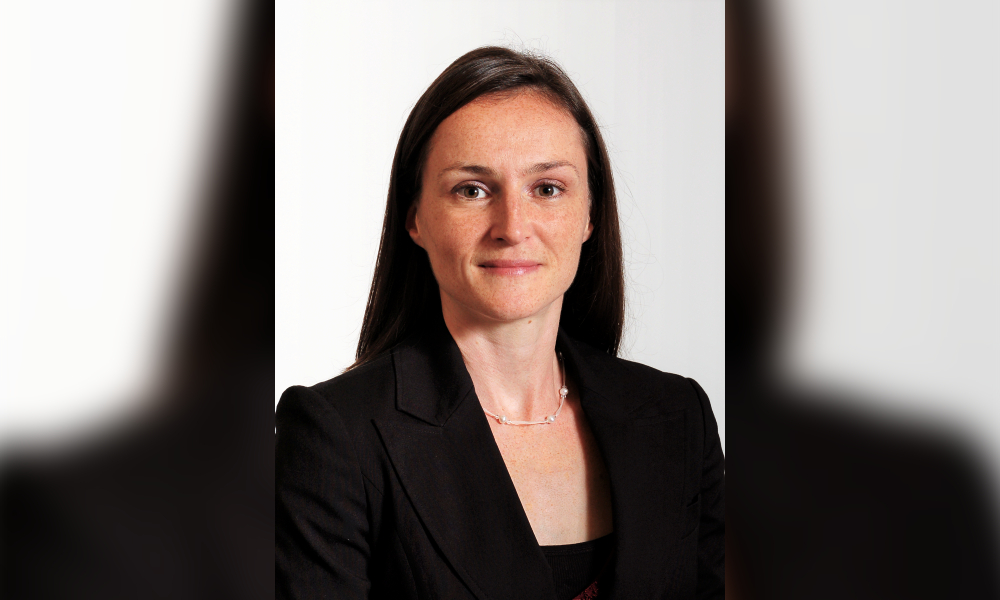Staying engaged with employees during the pandemic is key for legal departments, says Julie Chapman

Keeping the lines of communication open has been a major focus for the legal team at LexisNexis during the pandemic crisis this year. Since the shift to a remote working environment, the global provider of information and analytics has placed a deeper focus on the formal training of employees, in order to ensure that they have an awareness of the legal resources available to them.
“I want people to know who I am and how to contact legal if they have any questions,” says Julie Chapman, LexisNexis’ general counsel and chief privacy officer for Canada, and senior legal counsel for North America. “Even though I’m not in the office and you can’t pop your head in, you know you can reach me by email or via instant message. No question is a bad question. I’d much rather you ask. Continuing to get that communication out is harder than I thought it would be,” she says.
The legal department has a call every two weeks to discuss challenges and share ideas. As Chapman regularly works with the U.S. side of the business and with her team of lawyers in Manilla, she is accustomed to relying on phone and video-conferencing technology to keep in touch. However, the pandemic crisis has altered interactions with the Canadian business and the way in which onboarding of new employees takes place. Senior leadership team meetings now take place via Microsoft Teams, instead of in a boardroom, for example.
“If the CEO has a question, he can’t just pop his head into my office anymore. It has to be a little more formalized,” says Chapman. “If someone joins LexisNexis it used to be that their manager would walk them around the office and introduce them to people but now that’s not possible so they have to be choosy about who they take the time to set up a call with for those basic introductions.” Letting new employees know how to reach her, is a top priority for Chapman.
In order to keep the communication channels open, Chapman approached the CEO with an idea to invite all employees to participate in a regular group video call, during which they could share stories and strategies for coping during the pandemic. The first hour-long session was held in August and was met with a very positive response from participants.
“I think people just want to talk and they don’t want to feel alone,” says Chapman, who has been with the organization for 10 years. “Quite a few people joined the call and we discussed things like setting up your home office and juggling childcare responsibilities.” The group calls are held every four to six weeks and each one is followed by a survey to gauge the response and to solicit suggestions for the next meeting. The initiative has the full support of the company CEO and has been recognized at a global level within the organization.
Chapman supports the Canadian business of LexisNexis, not only from a legal advisor perspective, but also in understanding the risk tolerance of the business, and making decisions as part of the senior leadership team. She has been a member of the board of directors since 2014. Handling employee training in Canada is another important part of her mandate.
“The things we take very seriously and train employees on regularly are things like privacy laws, spam legislation, and anti-bribery and corruption. We just had some robust training on competition law,” says Chapman.
In addition to the Canadian business, Chapman also supports the U.S. business in a number of areas, including working with the global licensing team to negotiate content licensing agreements. In her role as global licensing lead attorney, she collaborates with LexisNexis’ affiliate organizations in more than 100 countries.
Finding ways to simplify processes and contracts has been one of Chapman’s major initiatives in recent months. The legal team has focused on making contracts easier to understand as well as reducing the number of contracts.
“We’ve taken an opportunity to step back a bit and see how we can, in this environment, make the sales process easier – not only for sales people and those around them, but also for our customers,” says Chapman. “My overriding goal for the rest of this year and as long as we’re in the pandemic is to support the business as best I can, in a way that makes people’s lives easier.”










